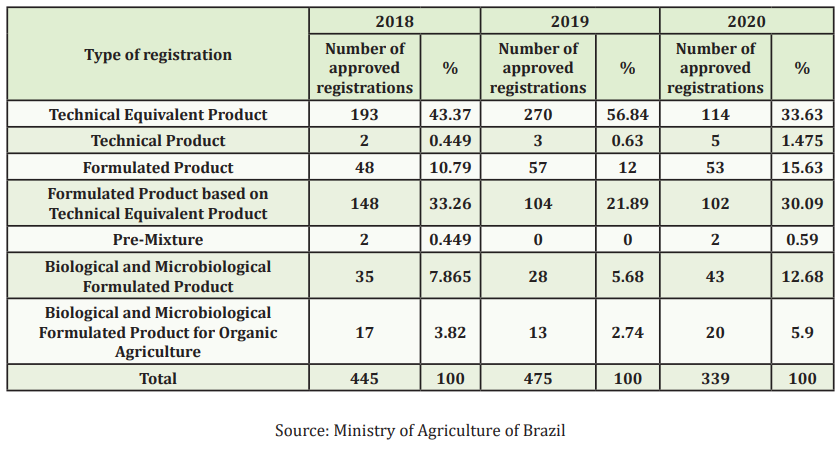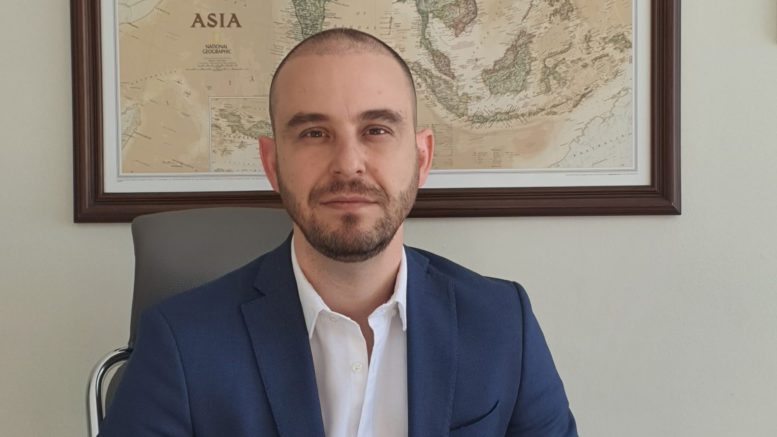Bruno Cavalheiro Breitenbach, federal Inspector of the Ministry of Agriculture clarifies the situation
Brazil is one of the largest pesticide markets in the world. To be able to commercialize this type of product, it is necessary to have the registration approved by MAPA. To understand the dynamics of this process, AgriBrasilis spoke with Bruno Cavalheiro Breitenbach from the Ministry of Agriculture, Supply and Livestock (MAPA).
Bruno Cavalheiro Breitenbach is federal inspector and General Coordinator of the General Coordination of Pesticides and Related Products (CGAA) – responsible for the registration of pesticides, and holds a degree in Agronomy from the Federal University of Goiás. He joined the Ministry of Agriculture, Livestock and Supply as a Federal Agricultural Tax Inspector as Federal Agricultural Inspector, and served in international missions related to the Montreal Protocol (UN).
AgriBrasilis – Is the pandemic affecting the flow of pesticide registration?
Bruno Breitenbach – The pandemic has certainly affected the work of all federal agencies, as well as private companies in Brazil and worldwide. However, I can say that at the Brazilian Ministry of Agriculture, we were successful in minimizing these impacts.
First of all, it is worth mentioning that the majority of the workforce linked to the analysis of pesticides was largely under the home-office regime since mid-2019. All employees under this regime were already working, therefore, away from the MAPA headquarters and under established goals, the results of the last months deriving from the success of this work methodology.
AgriBrasilis – What difficulties do you identify as limiting for the pesticides registration?
Bruno Breitenbach – Some provisions of Brazilian legislation, particularly the current Decree that regulates the Agrochemicals Law in Brazil, could be modernized in order to reduce some of the work carried out by the bodies responsible for registration.
We also need to implement a single electronic system for processing the processes and that can be used by the three federal agencies involved in the registration, with devices that allow greater clarity and transparency to the registration plaintiffs and to the society itself. Fortunately, this system is currently being contracted by the company to start the development.
AgriBrasilis – In 2020, what is the status of record assessments and approvals?
Bruno Breitenbach – This year we have already registered 293 pesticides. 105 are technical products and 188 are formulated products that can be purchased and will be effectively used by Brazilian farmers to defend their crops. Of the formulated products, 57 of them are biological, microbiological products, considered of low impact.
AgriBrasilis – Is the possibility of having a single agency for evaluating records on the agenda?
Bruno Breitenbach – No. The characteristic of the division of competences in the analysis of pesticide registries in Brazil is determined by federal law. The existing proposal in the Brazilian legislature does not provide for the centralization of analyzes.
It is worth mentioning that this characteristic provides the independence of the organs in the analyzes and is a strong demonstration of the Brazilian regulatory robustness. This is reflected in the quality and safety of pesticides used in Brazil.
AgriBrasilis – What are the most recurring non-conformities regarding registration processes?
Bruno Breitenbach – There are all kinds of nonconformities, from the lack of simple, but essential documents, to studies with inadequate protocols or results.
AgriBrasilis – What are the inspection concerns in the industry?
Bruno Breitenbach – The federal inspection carried out by MAPA focuses on the verification of the information described on the product’s label and package insert and also on the collection of samples for the determination and quali-quantitative verification of imported, manufactured and commercialized products.
AgriBrasilis – What is the trend regarding the time for approval of records?
Bruno Breitenbach – We have to recognize that the registration time in Brazil is a little slow when compared to its big competitors in the global agribusiness such as USA, Europe and Canada. On average, considering the registration of the technical product and the formulated product, it can take six years. This deadline shows, therefore, how unfair the accusations that Brazil is registering excess pesticides.
AgriBrasilis – What are MAPA’s actions in relation to the speed with which records are evaluated?
Bruno Breitenbach – We have improved our relationship with the other registration bodies, seeking to jointly improve the coordination and distribution of processes. As previously mentioned, we are in the process of contracting the company that will develop the pesticide registration system to be used jointly by the three agencies. This system was already foreseen since 2002 but only in this management will it finally be developed.
In addition, in recent years we have implemented several management measures based on goals to increase the productivity of our technicians. The home-office, implemented last year has guaranteed us good results in terms of analyzes and opinions produced.


